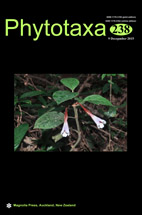Abstract
South Africa’s exceptionally rich and diverse flora faces challenges in terms of utilisation, management and conservation; these actions are underpinned by taxonomic research. The principal purpose of this review is to determine whether South Africa has the human capacity and resources to conduct taxonomic research that is required to support end-users of plant taxonomic information, and to identify shortages of capacity or resources that might prove to be an obstacle for plant taxonomic research. From an analysis of the existing gaps in taxonomic information, current research trends, and resources, it is apparent that there is a critical shortage of human capacity in South Africa to conduct plant taxonomic research for the benefit of biodiversity and society. Training institutions need to ensure the supply of suitably trained graduates including concentrating on those who meet Employment Equity targets. The need for more taxonomists is clearly justified, but may not be a priority in a country that already has such shortages of capacity in education and social services. Aside from lobbying for more jobs to be created, there is an urgent need to utilise available resources (human and other) effectively, and to implement a strategy for taxonomic research to ensure that priority activities are conducted.

